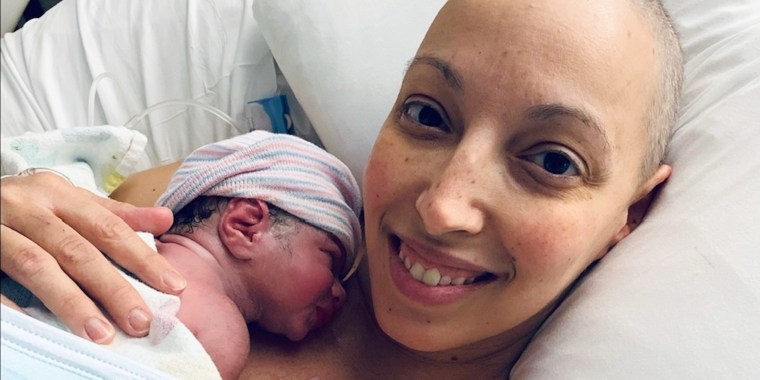When Stephanie Rifici was breastfeeding her son, Luca, she frequently noticed “hard milk calcifications" in her breasts, but they would later disappear. Then she noticed a lump in her left breast that didn’t go away.
“I figured it was just that hard milk calcification,” Rifici, 35, a flight attendant from Cleveland, told TODAY. “I was a little concerned with it because it had been a couple of months and it was still there.”
Rifici visited her OB-GYN, who sent her for a mammogram, ultrasound and needle biopsy. But she learned she was pregnant before her test results returned.
“I was very excited but very nervous,” she said. “A week after I found out I was pregnant … I unfortunately got the call that I indeed did have breast cancer.”
Breast cancer and pregnancy
In September 2020, Rifici learned she stage 2 triple negative breast cancer.
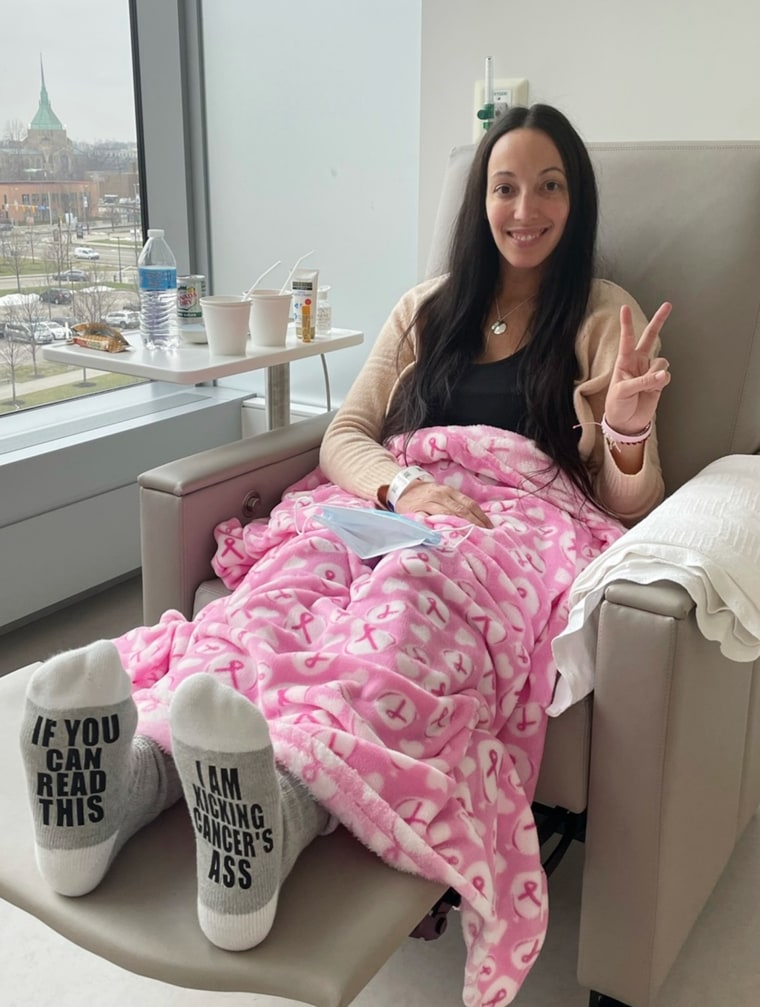
“It’ is a more aggressive type of cancer and it’s harder to treat,” she said. “That was scary getting that news that I have a more aggressive type. But a positive to that with being pregnant is that the pregnancy wasn’t fueling the cancer.”But Rifici and her husband, Evan Thorkelson, weren’t sure what would happen. They didn’t know if she could be treated for cancer while being pregnant and some doctors they visited early on didn’t offer many answers.
“It’s not a common thing being pregnant and being young and being diagnosed with cancer. So it was hard,” she explained. “A lot of doctors were like, ‘There’s not a lot of data.’”
That meant the couple felt unsure what to do at first. Could Rifici be treated for cancer while pregnant? Would putting off treatments to protect the baby put her life at risk?
“We struggled,” Thorkelson, 33, director of quality and regulatory at a medical device fitting maker, told TODAY. “Some people said, ‘You’ve got to look out for Steph. She’s the mom. You already have a son. You want to make sure that Steph’s around for your other son.’”
He admitted that they also felt unsure what to do at times.
“We were so happy we were able to get pregnant and have another son,” he said. “(But) we don’t want anything to happen to Steph.”
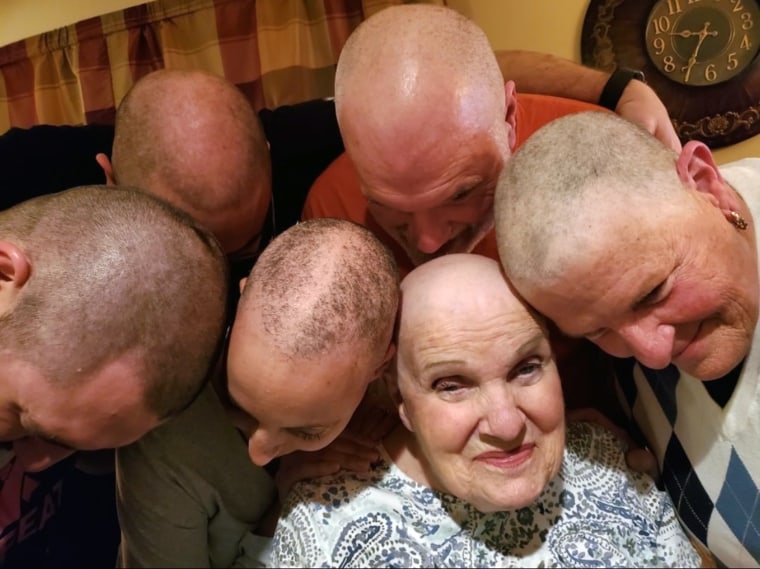
They visited the Cleveland Clinic for another opinion and learned that there are treatments that pregnant people tolerate. But sometimes worry still crept into their minds.
“We did struggle because at times. We would think, ‘Whoa, are we jeopardizing Steph’s well-being by keeping this baby?’ Because obviously if the baby’s born but Steph passes away what have we really accomplished?” Thorkelson said. “We were told that if we wanted to have the baby that there would be a method and a treatment plan and they felt fairly confident that we could keep the pregnancy and go with the treatment."
They felt comfortable with the Cleveland Clinic’s plan but Rifici needed to wait a few weeks to start treatment.
“Once you’re in the second trimester it’s safe to do surgery and to do chemotherapy,” she said. “My doctor recommended that I go back for another ultrasound on my tumor just to make sure that the tumor hasn’t grown … with triple negative those tumors tend to grow very fast and very aggressive.”
Treating breast cancer during pregnancy
“Breast cancer diagnosed at any point during pregnancy is not very common and so a lot of the data and management, how we approach care for patients, can be limited by that,” Dr. Erin Roesch, a hematology and medical oncologist at Cleveland Clinic, told TODAY. “But we do see it.”
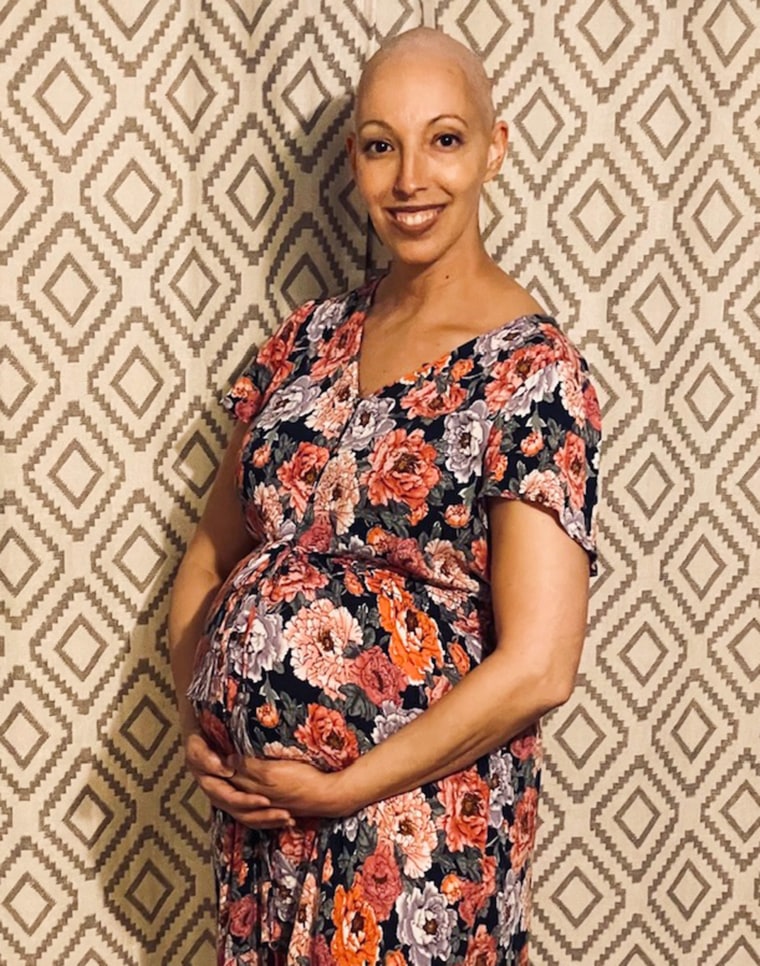
Roesch said treatment for pregnant people with breast cancer requires a multidisciplinary approach with oncologists, surgeons, radiologists and maternal fetal medicine doctors all taking part in the cancer management.
Triple negative cancer doesn’t have a hormone receptor for estrogen or progesterone and is HER protein negative, she explained. That means targeted treatments don’t help. The doctors had to consider when to start Rific’s therapy.
“Timing is what becomes very critical when taking care of women diagnosed with breast cancer during pregnancy,” Roesch said.
Dr. Katherine Singh was Rifici’s maternal fetal medicine specialist and said that baby and mom were healthy.
“Her pregnancy went very very well,” she told TODAY. “I think that speaks really so highly to Stephanie. She came into the situation obviously confused and scared. But once she made her mind up that she’s going to be aggressive about treating this cancer she was a superstar.”
Part of being a "superstar" patient is being flexible. Generally for triple negative breast cancer, doctors recommend chemotherapy, surgery then radiation, Rifici said. But her doctors thought it would be better to change the order.
“The tumor board met and they actually decided that in my special case that they'd do my surgery first so they’re able to get the tumor out of there with a low risk to the fetus, being so early in my pregnancy,” Rifici said. “Sometimes going under anesthesia and having surgery can actually put you in early labor.”
What’s more, they learned that there are chemotherapies, which are effective for triple negative breast cancer, that don’t spread into the placenta, meaning the baby is safe.
“We couldn’t believe it,” Rifici said. “We were so ecstatic to hear that news that it’s safe to do while being pregnant.”
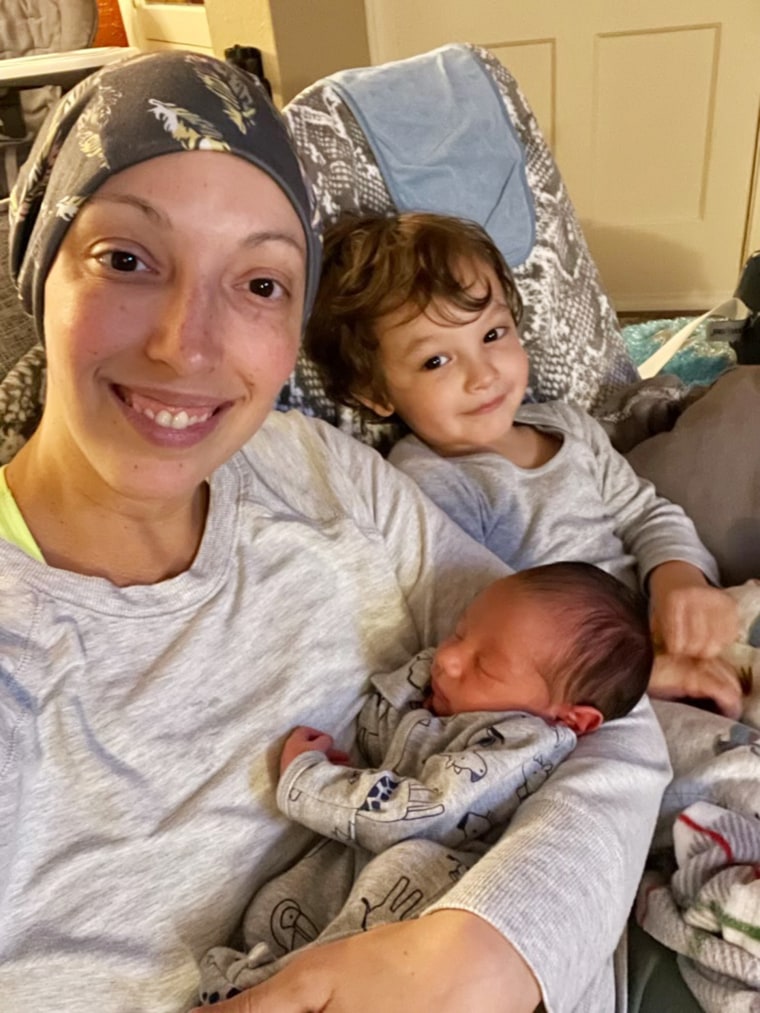
However, there was another treatment they wanted her to have that does cross into the placenta, so they timed that treatment for after she gave birth. While she felt nervous during her lumpectomy, her team held her hand throughout.
“They had a little fetal monitor and they were able to monitor the baby through my surgery,” Rifici said. “It was a huge success and they were able to get the whole tumor out of there with clear margins.”
The team also planned the delivery to be a little early when Rifici wasn’t receiving chemotherapy. They also wanted her have time to heal before starting chemotherapy again.
“The delivery was beautifully uncomplicated,” Singh said. “Again there’s no right answer about the timing of the delivery in this scenario. It has to be where we are in the chemotherapy and treatment plan. How does the woman feel about the gestational age?”
A birthday and return to work
After baby Leo's birth on April 21, 2021, Rifici completed more chemotherapy and then 30 radiation treatments.
“I got a lot of burning, which was hard to try to navigate with the kids because I had a toddler and a little baby,” she said.
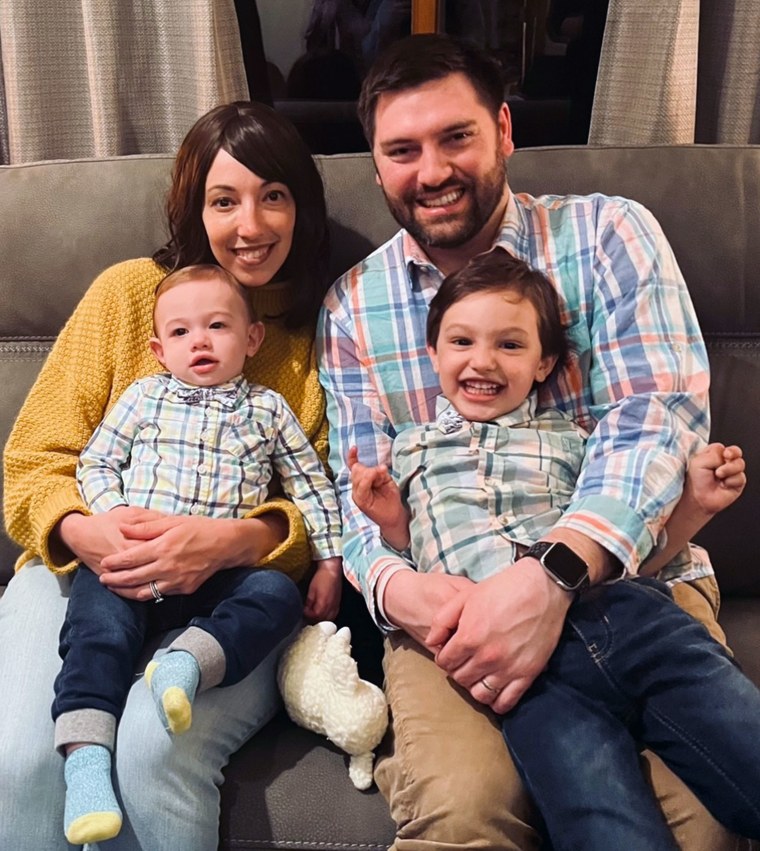
But she’s done with treatment and the family celebrated Leo’s first birthday recently. She’s preparing to return to work soon and hopes that her story helps other pregnant people diagnosed with breast cancer.
“I would love it if I can even help one person in my situation to know there are options out there,” Rifici said.
